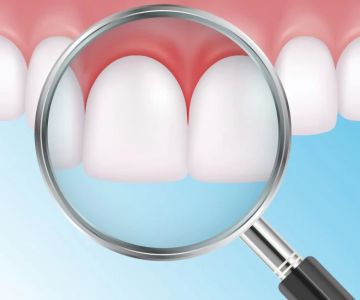What Disease Can You Catch from Oral Contact? Exploring the Risks
Our mouths are gateways not just for food and communication, but also potential sources of infection. Understanding what disease can you catch from oral contact is essential for protecting yourself and others from contagious illnesses. Oral transmission can occur through kissing, sharing utensils, or contact with saliva, making awareness and good hygiene crucial.
1. Common Infectious Diseases Transmitted Through Oral Contact
Several diseases spread primarily or partially through the mouth, including:
- Herpes Simplex Virus (HSV): HSV-1 commonly causes cold sores and can easily transmit via kissing or sharing personal items.
- Human Papillomavirus (HPV): Some strains of HPV spread through oral sex and are linked to oropharyngeal cancers.
- Mononucleosis: Known as the "kissing disease," it spreads through saliva and causes fatigue, fever, and swollen glands.
- Respiratory Infections: Viruses like influenza and the common cold often spread through saliva droplets during close contact.
- Gingivitis and Periodontal Disease: While primarily caused by poor oral hygiene, bacteria responsible for gum disease can transfer between people.
2. How Poor Oral Hygiene Increases Disease Risk
Poor oral hygiene can create an environment where harmful bacteria thrive, increasing susceptibility to infections. When the gums are inflamed or teeth are decayed, it becomes easier for bacteria and viruses to enter the bloodstream, potentially affecting overall health.
Research links oral infections to systemic conditions like heart disease, diabetes, and respiratory illnesses, illustrating the importance of maintaining oral health to prevent broader health problems.
3. Real-Life Case: A Cautionary Tale
Sarah, a young professional, developed persistent gum inflammation after unknowingly sharing drinks and utensils with a friend who had a cold sore. Over weeks, her symptoms worsened, leading to a dental visit where she learned her gums were infected with HSV-1. This experience highlighted how casual oral contact can sometimes transmit infections that impact oral and general health.
4. Preventive Measures to Protect Against Oral Disease Transmission
Protecting yourself involves simple yet effective practices:
- Maintain Good Oral Hygiene: Brush twice daily, floss regularly, and visit your dentist for cleanings.
- Avoid Sharing Personal Items: Do not share toothbrushes, utensils, or cups.
- Practice Safe Intimacy: Use protection and communicate openly with partners about health.
- Stay Alert to Symptoms: If you notice cold sores or unusual oral discomfort, avoid close contact until healed.
- Boost Overall Immunity: A healthy diet, hydration, and stress management support your body's defense.
5. When to Seek Professional Oral Health Advice
If you suspect you've caught an oral infection or experience symptoms like persistent sores, bleeding gums, or unexplained oral pain, it’s important to consult a dental or healthcare professional promptly. Early diagnosis and treatment can prevent complications and reduce transmission risks.
6. How Dentistry Toothtruth Supports Your Oral Health
For comprehensive care and guidance on preventing and treating oral diseases, Dentistry Toothtruth offers expert dental services focused on patient education and individualized treatment plans. Whether you need a routine check-up or specialized care for oral infections, their experienced team helps safeguard your oral and overall health.
Explore Dentistry Toothtruth to access trusted advice and quality treatments designed to keep your smile healthy and protected.







 Westgate Dental Arts3.0 (2 review)
Westgate Dental Arts3.0 (2 review) Coventry Family Dental4.0 (247 review)
Coventry Family Dental4.0 (247 review) Familia Dental3.0 (1028 review)
Familia Dental3.0 (1028 review) Dr. Daniel S. Fife, DDS4.0 (31 review)
Dr. Daniel S. Fife, DDS4.0 (31 review) Dentistry At Suburban Square: Michael I. Wollock, DMD4.0 (1228 review)
Dentistry At Suburban Square: Michael I. Wollock, DMD4.0 (1228 review) Comfort Care Dental4.0 (1156 review)
Comfort Care Dental4.0 (1156 review) The Importance of Oral Health Education During Pregnancy for a Healthy Pregnancy
The Importance of Oral Health Education During Pregnancy for a Healthy Pregnancy Why Skipping Dental Checkups Can Lead to Bigger Oral Health Problems
Why Skipping Dental Checkups Can Lead to Bigger Oral Health Problems Best Tips for Brushing Your Teeth Properly for Healthy Gums: Essential Techniques for Oral Health
Best Tips for Brushing Your Teeth Properly for Healthy Gums: Essential Techniques for Oral Health Advantages of Porcelain Dental Restorations
Advantages of Porcelain Dental Restorations How Can Diabetes Cause Tooth and Gum Problems? Preventing and Managing Oral Health Issues
How Can Diabetes Cause Tooth and Gum Problems? Preventing and Managing Oral Health Issues Healthy Habits for Promoting Good Oral Health and Hygiene: Tips for a Healthy Smile
Healthy Habits for Promoting Good Oral Health and Hygiene: Tips for a Healthy Smile